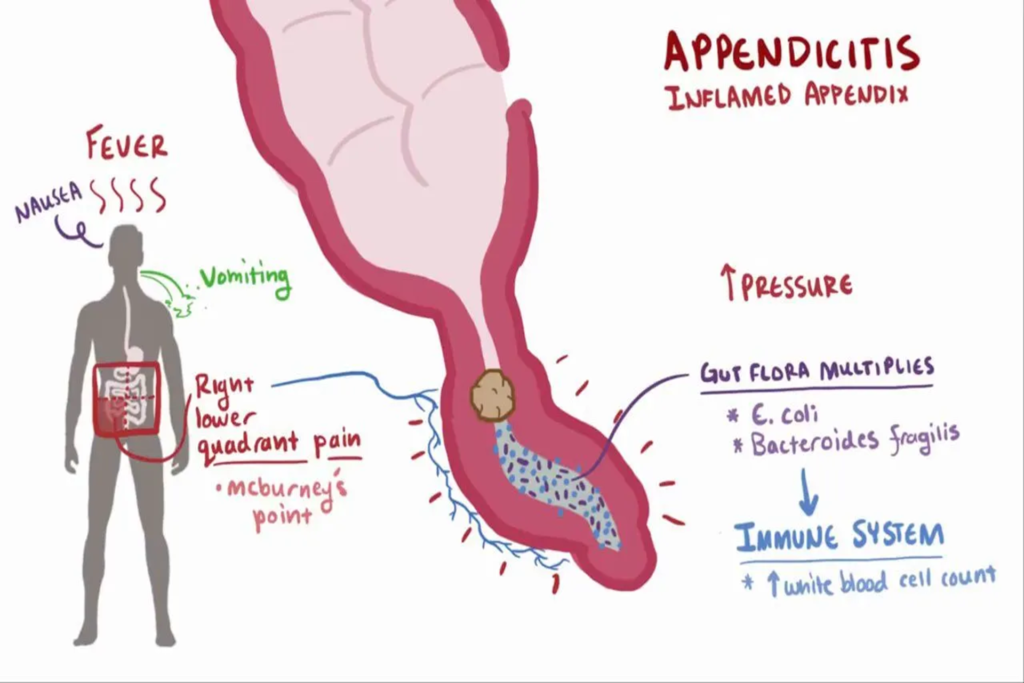
Overview:
Appendicitis is the inflammation of the appendix, a small, finger-shaped pouch attached to the large intestine. It is a common surgical emergency that occurs when the appendix becomes blocked, leading to bacterial infection and inflammation. If untreated, appendicitis can result in the rupture of the appendix, leading to serious complications such as peritonitis.
Causes:
The most common cause of appendicitis is the blockage of the appendix, which can be due to fecal matter, foreign bodies, or cancer. This blockage leads to bacterial growth and infection. In some cases, appendicitis may also occur due to viral or bacterial infections affecting the digestive system.
Symptoms:
Symptoms of appendicitis include pain starting around the belly button, which then moves to the lower right abdomen, loss of appetite, nausea, vomiting, fever, and abdominal swelling. The pain often intensifies with movement, coughing, or deep breathing. If left untreated, the appendix may rupture, leading to severe pain and a more serious condition.
Treatment:
Appendicitis is typically treated with surgery called an appendectomy, which involves the removal of the inflamed appendix. The procedure can be performed via laparoscopic (minimally invasive) surgery or traditional open surgery, depending on the severity of the condition. If the appendix has ruptured, additional treatments like drainage of any abscess and antibiotics may be required.
Precautions:
It is important to seek immediate medical attention if symptoms of appendicitis appear, as delays in treatment can lead to serious complications. Avoid self-medication or delaying diagnosis. Patients should discuss any underlying health issues with the surgeon before surgery.
Prevention:
There is no guaranteed way to prevent appendicitis, but maintaining a healthy diet with a high fiber intake may lower the risk by promoting better digestive health. Regular physical activity and proper hydration may also be helpful.
For expert surgical care in appendicitis, visit KDM Hospital in Lucknow. The hospital offers comprehensive diagnostic services, including imaging, and provides prompt surgical intervention for appendicitis with expert surgeons available 24/7.
